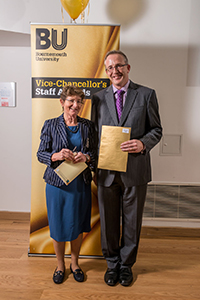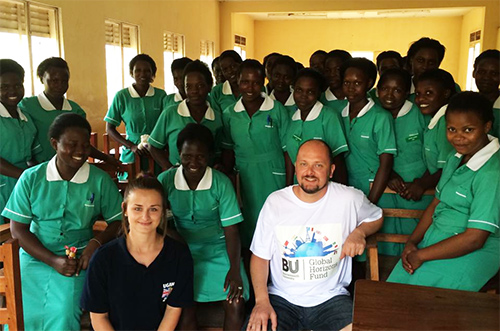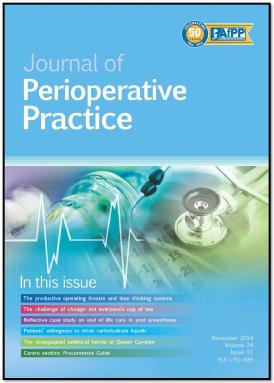Final year nursing students at BU recently contributed to a doctoral study about learning on practice placements.
Amanda Alexander, Joanne Hewitt, Teresa Pearce, Elinor Suter and Clare Taylor volunteered to share their top tips to help new nursing students make the most of their placement experience.
Whether you’re a nursing student or not, if you’ll be starting a placement soon, their tips may help you too:
See what team members do:
Spend time with different people in the team. They’ll teach things in different ways – some may ask you to observe while others expect you to practice a technique or activity. Officially request a day working with different members of staff so that you can focus on what you are learning.
Build your confidence:
Do your homework before arriving on placement, and while you’re settling in, take notes and be prepared to ask questions. The first few days or weeks of a placement can be overwhelming, and for healthcare professionals, things like shift handovers can be challenging, especially when there’s lot of jargon being used. Make sure you know who you are working with so you know who to refer questions to, and familiarise yourself with processes quickly so you can make even small contributions. At the end of each day, ask yourself ‘What have I learned?’
Build your knowledge base:
Learning is your priority on placement and everything is a learning opportunity, from practicing a procedure or process to observing how colleagues make complex decisions. Ask questions, request feedback and make the most of time with your mentor to discuss your learning outcomes and how to achieve them.
Stand firm on important issues:
Some staff can resent placement students because of their protected role or lack of expertise, so try and build a good rapport with everyone, keeping your views and actions professional. If you feel that your learning experience is being affected by an individual’s attitude, initiate a conversation with your mentor or your university link tutor. Be assertive in seeking confirmation of who your mentor is on each shift (or project) as it’s important for your learning to know who’s supervising you. If you need more practice with a procedure or process, ask and keep asking – it’s too late to regret or complain once you’re back at uni.
The students’ top tips were originally published in Nursing Standards magazine on Wednesday 28 January 2015.
 Bournemouth University
Bournemouth University Congratulations to Dr Carol Clark, from the School of Health and Social Care on winning the Academic Staff – Individual Achievement Award at the Vice-Chancellor Staff Awards 2014.
Congratulations to Dr Carol Clark, from the School of Health and Social Care on winning the Academic Staff – Individual Achievement Award at the Vice-Chancellor Staff Awards 2014. Mike Thomson and Jodie Willis, Graduates in Operating Department Practice, reflected upon their experiences of visiting Uganda during their final year in July 2014. With support from the
Mike Thomson and Jodie Willis, Graduates in Operating Department Practice, reflected upon their experiences of visiting Uganda during their final year in July 2014. With support from the  Tina Wade has had a very #BUProud November 2014… Along with the rest of her class, she graduated from BU with a DipHE in Operating Department Practice at the Bournemouth International Centre. She also had her final year research project published as a case study in this month’s edition of the
Tina Wade has had a very #BUProud November 2014… Along with the rest of her class, she graduated from BU with a DipHE in Operating Department Practice at the Bournemouth International Centre. She also had her final year research project published as a case study in this month’s edition of the